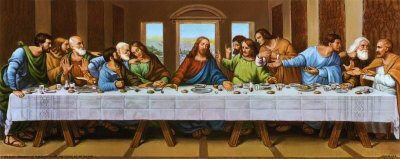Why we believe in the communion with the Saints?
Catholic Doctrine:
[The communion of saints is the spiritual solidarity which binds together the faithful on earth, the souls in purgatory, and the saints in heaven in the organic unity of the same mystical body under Christ its head, and in a constant interchange of supernatural offices. The participants in that solidarity are called saints by reason of their destination and of their partaking of the fruits of the Redemption (1 Corinthians 1:2 &151; Greek Text). The damned are thus excluded from the communion of saints. The living, even if they do not belong to the body of the true Church, share in it according to the measure of their union with Christ and with the soul of the Church. St. Thomas teaches (III:8:4) that the angels, though not redeemed, enter the communion of saints because they come under Christ's power and receive of His gratia capitis. The solidarity itself implies a variety of inter-relations: within the Church Militant, not only the participation in the same faith, sacraments, and government, but also a mutual exchange of examples, prayers, merits, and satisfactions; between the Church on earth on the one hand, and purgatory and heaven on the other, suffrages, invocation, intercession, veneration. These connotations belong here only in so far as they integrate the transcendent idea of spiritual solidarity between all the children of God. Thus understood, the communion of saints, though formally defined only in its particular bearings (Council of Trent, Sess. XXV, decrees on purgatory; on the invocation, veneration, and relics of saints and of sacred images; on indulgences), is, nevertheless, dogma commonly taught and accepted in the Church. It is true that the Catechism of the Council of Trent (Pt. I, ch. x) seems at first sight to limit to the living the bearing of the phrase contained in the Creed, but by making the communion of saints an exponent and function, as it were, of the preceding clause, "the Holy Catholic Church", it really extends to what it calls the Church's "constituent parts, one gone before, the other following every day"; the broad principle it enunciates thus: "every pious and holy action done by one belongs and is profitable to all, through charity which seeketh not her own". ] c. from: J.F. Sollier. Transcribed by William G. Bilton, Ph.D.. In memory of Sister Ignatia, OSH
The Catholic Encyclopedia, Volume IV. Published 1908. New York: Robert Appleton Company. Nihil Obstat. Remy Lafort, Censor. Imprimatur. +John M. Farley, Archbishop of New York
From the plain and simple word we became one with faith for those that died horroble death because of this FAITH. As believer of this faith we are united with them.
Jesus reminds us to live in holy life, how? we say we can't because we are only human... but we dont need to be perfect but atleast we can emmitate the life of the Saints. Is that make sense to you? The words of Jesus "If you love me, you carry your cross and follow me" do you know that the life of the Saints was actually the true action of faith...? this is what it means to follow Christ. A complete surrender of ones self to the Will of God. Even if it would cost their lives. So Catholic ask the Saints for intercessions, to help them go through difficulties, or asking them to pray for them, because they are already infront of God, and nothing they would request for the good of your Soul will not be granteed by the Jesus.
I will tell you about "a dreams" connected to this facts; My friend Erma had dream about Jesus and St. Jude, Erma was doing a Novena to St. Jude for 40 days. After the novena she dreamed that she was infront of Jesus and Jesus called St. Jude, "Jude come, do you know Erma is here?", St. Jude came and Jesus told St. Jude I have authorized you to grant favors to people so they will be a witness to others that others may come to believe me."
skip to main |
skip to sidebar

The Institution of the Holy Eucharist
My blog is a collection of real messages of Jesus, Mother Mary, Archangel Michael from different parts of the world. Pray for decerment of all these messages.
Facebook Badge
Anna's Blog Archive
-
▼
2007
(10)
-
▼
December
(10)
- The Latest Message of Mother Mary to the World
- St. Michael Archangel's message to us.
- The messages of Jesus in our time.
- The Second Coming of Jesus
- THE Divine Mercy
- The Holy Rosary & History from St. Dominic
- COMMUNION WITH THE SAINTS
- Blessed Mother Mary and practice devotion to her
- Catholic Church The True Church
- Religion and Beliefs
-
▼
December
(10)
About Me
WORK HARDER TO BE HOLY EVERYDAY
As no such thing as no need to think about being Holy, as we are already save through Jesus "true" in some sense but the sins being committed every now and then are not being paid yet nor forgiven, so this is where we work harder and attain Holiness as our God is Holy. Jesus reminds us that even the smallest sin shall be paid in full, and no one can come to paradise without paying them up to the last penny.
Prayer is the greatest way to attain Holiness plus works.
Prayer is the greatest way to attain Holiness plus works.
The Last Supper

The Institution of the Holy Eucharist

